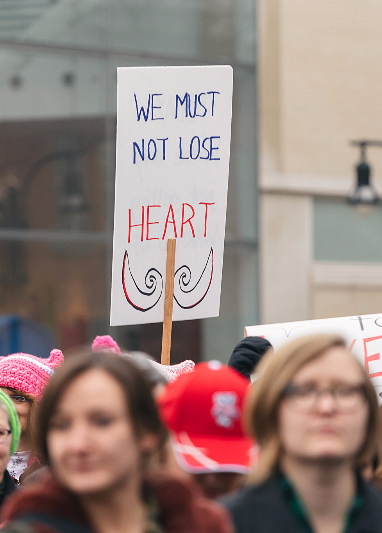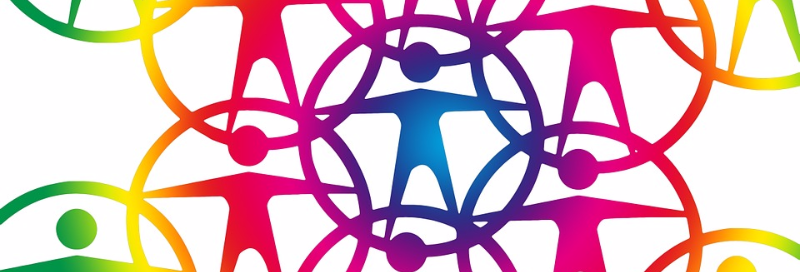
February 6, 2017
Reactivity is not a good buddy to either wisdom or contentment.
President Trump has a talent for eliciting strong reactions. Some people are delighted with his earthy directness: “Sock it to ‘em Mr. President!” Others cringe in disbelief at his direction: “You gotta be kidding me!” (I’m with the latter.)
Many meditators are reassessing how much daily news they really want to hear. One yogi said she used to listen to news on the drive to work every morning. Now she switches to music. Another said his mind is so filled with reactivity that it takes longer to set it aside so he can meditate.
Unless we plan to retreat into a Himalayan cave, we have a new (and perhaps unwelcomed) opportunity to learn how to find contentment and wisdom while living in a tumultuous world. Here are a few things I’ve found helpful:

When ancient pre-human ancestors fell from trees, they startled: arms and legs reflexively spread out making it easier to catch a branch and mitigate their fall. When they fell into a river, their breathing stopped temporarily and prevented water from entering their lungs. When they saw something round and smooth in the grass, they reactively jumped aside before they figured out it might be a snake. If they had to think out what to do before moving their arms and legs, holding their breath, or jumping away, they were less likely to live long enough to pass their DNA along to us.
So when our minds, hearts, or bodies become reactive to stress, they are just doing their job. Evolution bred us this way. Our system is doing what’s most natural. Wishing we had a different mind, heart, or body is not helpful or practical. We first have to recognize and learn how our bio-energetic system operates. Reactivity is natural.

Football players and other athletes train themselves to tuck and roll rather than flail when they fall. We can train our system to respond in new ways.
In meditation, the six Rs first have to be consciously practiced until they become so familiar that they are an automatic response to a distraction. At first we Recognize. Release. Relax. Re-Smile. Return. Gradually these blend together into a single recognize-release-relax-re-smile-return.
This retraining requires time, practice and patience. For meditation to work, it helps to be in it for the long-haul.
Despite all our training, a new stress can trigger us. It’s uncomfortable. It’s tempting to try to push it aside. But it’s already happened. Trying to change it is like trying to change the past. Good luck with that.
If we don’t fight our reactivity, it’s easier to step back and gently observe. This kindness does not change the moment. It does nothing in the short run. But in the medium and long run, it trains our neural network to respond with gentleness, spaciousness, and ease. This helps us see more clearly how our system works. We become wiser and more content.

No matter how much we meditate, sometimes the political system, our family system, or our internal system becomes more than the mind can manage. We all have our limits. As we see our reactivity with more compassion, we’ll recognize when we’re approaching those limits. We don’t have to figure it out. We just cultivate a clear awareness and the awareness will let us know.
There is no single answer to how to manage our relationship with the world. If we are committed to being engaged, there will be times when our system is overwhelmed. This is not a problem if we are kind to our system. Then we’ll just know when it’s time to turn off the radio, when it’s time to march in the streets, when it’s time to meditate, and when it’s time to gather with others for support.
We each have a role to play in the large whole of humanity and life. We each have a way to be with moments of peace and moments of despair. None of us can do all of it. But we can respond from the heart with what feels deeply most natural to us.
Recognizing our limits allows us to step back before we get overwhelmed. We step back out of wisdom, not out of reactivity. We know that stepping back is not a permanent solution — but something to help us find a little stability of mind and heart. And once we have that stability, we can re-engage.
It is a middle way after all. Courage without love is not courageous. And love without courage is not loving. We need both. They are part of each other and part of a larger whole.
Metta,

